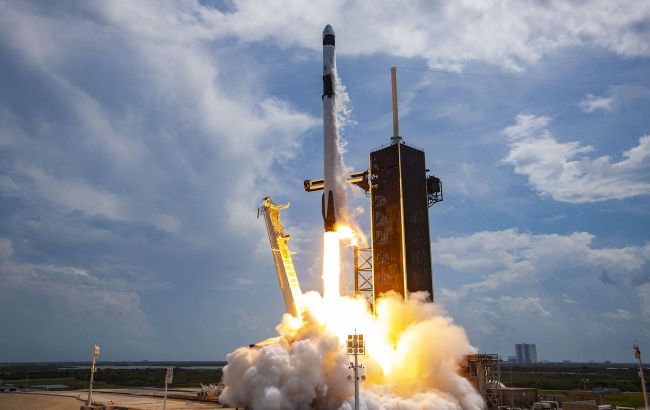Trump wants to cut NASA funding: Telescopes and Mars missions are at risk
 NASA may lose a significant portion of funding, which will affect space programs (Illustrative photo: Getty Images)
NASA may lose a significant portion of funding, which will affect space programs (Illustrative photo: Getty Images)
The administration of Donald Trump has proposed nearly halving NASA’s science funding for 2026 — a move that has raised alarm within the scientific community, according to Bloomberg.
The annual budget proposed by Donald Trump for the National Aeronautics and Space Administration (NASA) in 2026 includes an almost twofold cut to the agency’s science division. Notably, it calls for ending funding for key initiatives such as the Mars sample return mission and the launch of a new space telescope.
The proposal was sent to NASA on Thursday, April 10, as part of the ongoing coordination process between federal agencies and the White House Office of Management and Budget to finalize Trump’s 2026 budget request.
The outlet noted that the agency received the budget proposal just one day after Donald Trump’s nominee to lead NASA — billionaire, entrepreneur, and SpaceX mission investor Jared Isaacman — stated that the agency should be capable of simultaneously carrying out crewed missions to both the Moon and Mars. He emphasized that Trump aims to usher in a new golden age of science and discovery.
"I’m passionate about science and love nothing more than continue to see NASA go out and try and unlock the secrets of the universe," Isaacman told US senators during his confirmation hearing in Washington.
Earth studies and telescopes
The draft budget proposes slashing approximately $3.9 billion from NASA’s entire Science Mission Directorate - well below the $7.3 billion allocated to the division in fiscal year 2024.
According to a document reviewed by Bloomberg, the budget request calls for more than a 50% cut to the agency’s Earth science missions and nearly a 70% reduction to its astrophysics division compared to the current year’s enacted funding. Other science divisions would also face significant reductions.
A NASA spokesperson confirmed the agency has received the preliminary budget request for the fiscal year 2026 and has begun reviewing it but did not confirm specific figures.
The proposal does include continued funding for the Hubble and James Webb space telescopes, which remain operational in orbit. However, it makes no mention of funding for other telescopes, suggesting a possible cancellation of the planned launch of the Nancy Grace Roman Space Telescope - a powerful observatory designed to study the evolution of galaxies, stars, and distant exoplanets.
The Roman telescope was slated for launch by May 2027, with a total mission budget of $4.3 billion. It has already been assembled and is undergoing testing at NASA’s Goddard Space Flight Center, meaning it could potentially be launched as early as fall 2026.
Exploration of Mars
The proposed budget request also fails to allocate specific funding for NASA’s Mars Sample Return (MSR) initiative. This program began with the launch of the Perseverance rover, which has been collecting soil samples on the Red Planet since February 2021.
However, in 2024, NASA admitted that development costs for the remaining components required to return the samples far exceeded the initial budget and faced significant delays.
To address this, the agency reached out to the commercial space industry and other organizations with a request for proposals on more efficient approaches to execute the program. In January, NASA announced plans to finalize the implementation strategy in the second half of 2026.
According to Bloomberg, the budget request also includes significant cuts to NASA’s planetary science and heliophysics divisions. These reductions could lead to the cancellation of missions currently under development or already operating in space.
Now that NASA has received the preliminary version of the budget request, it must submit its feedback to the White House Office of Management and Budget before the final version is released later this year. Nevertheless, the ultimate decision on whether to approve the proposed 2026 budget cuts will rest with the United States Congress.
Changes in NASA's operations
Recently, Bloomberg reported that employees from Elon Musk's Department of Government Efficiency (DOGE) were granted round-the-clock access to NASA's facilities and data systems. This included access to sensitive information about employees across the country.
In January, the agency warned about a new dangerous asteroid approaching Earth. Scientists are concerned about the trajectory of its path toward our planet.

